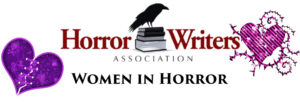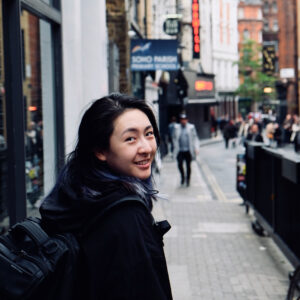Women in Horror: Interview with Ai Jiang


Ai Jiang is a Chinese-Canadian writer and an immigrant from Fujian. She is a member of HWA, SFWA, and Codex. Her work can be found in Fantasy & Science Fiction, The Dark, Uncanny, among others. She is the recipient of Odyssey Workshop’s 2022 Fresh Voices Scholarship and the author of Linghun. Find her on Twitter (@AiJiang_) and online (http://aijiang.ca).
What inspired you to start writing?
Instead of speaking about what inspired me to start writing, I want to talk a little about what inspires me now to continue writing and the direction that my writing has now taken. I’ve been thinking a lot lately about why I want to write and pursue writing as a career, and what my “ultimate goal” is. I suppose it began with me wanting to further understand myself and the people around me, as well as make sense of the world and how it has shaped my values and beliefs, and the opportunities writing has to change these very things I originally thought were set in stone. I think what inspires me most now to continue writing is the power that writing has in bringing people together, in fostering empathy, in helping us understand our similarities while embracing our differences. Writing is something that has the power to heal, mend, connect, as much as it has the potential to destroy, and I hope that fellow writers might strive for the former and endeavor to stray from the latter.
What was it about the horror genre that drew you to it?
Outside of fostering empathy in readers and writers alike, I think horror pushes the boundaries of what is considered fear and how it might differ from person to person. This difference challenges the idea that horror can only be a certain type of story that tackles very specific and more universally known horrors, and has the potential to introduce audiences to a broader range of unease and unsettledness through inventive concepts and storytelling.
Do you make a conscious effort to include female characters and themes in your writing, and if so, what do you want to portray?
In light of recent events concerning reproductivity rights and body activism, I find myself tackling these political and social issues through my writing and, in particular, exploring these challenges through the lens of women. I want to portray the inequities women experience on a daily basis, but also the way they have persisted in the past, how they might be ongoing in the present, and how they might extend long into the future. There are also ingrained notions about femininity and females, about the duties, expectations, and responsibilities of women. These are traditions, values, and beliefs that are held very firmly by women on my father’s side of the family and to a lesser extent on my mother’s side. I seek to explore the detriments of these held beliefs through my writing and how it has a negative impact on women’s identity and mental health—both of which are not things often spoken about and simply accepted as being the way things ought to be.
What has writing horror taught you about the world and yourself?
What writing horror has taught me is not only the subjectivity of fear but also the universality of it, as contradictory as that might seem. Fear is something shared by all, and fear is something that can expose to others and reveal to us what we are most afraid to confront and how far we might go to avoid such confrontations. Horror has also shown me how difficult it is for most to be vulnerable and to share with others their vulnerabilities. To do so is true courage, I think. What I believe most is that as much as horror can induce feelings of paranoia and betrayal, it can also help foster trust once we come to understand the true roots of our fears.
How have you seen the horror genre change over the years? And how do you think it will continue to evolve?
I think there is such a flexibility to the genre of horror in the different structures, perspectives, and modes of storytelling it employs. It reveals the darkest parts of society and humanity. I’ve seen such inventive works birthed from the horror genre in the past years as well as an uptick in diverse writers and their narratives, and I hope this change will persist. I suspect horror writers will continue to push the limits of storytelling and explore how much deeper we can dig into humanity through the characters—that darkness is frightening, but that darkness is necessary.
How do you feel women have been represented thus far in the genre, and what hopes do you have for representation in the genre going forward?
I think there is definitely a shift in the way women have been represented in the genre compared to the past. There is a much wider variety of women characters now that strays from the stereotypes of the past (e.g., the woman who falls while running away, the woman who is always screaming at everything, the frail damsel that requires saving). Women in works of horror now have much more agency, more active roles, and a much larger impact on the plot as a whole. Like diversity, I hope women continue to be spotlighted in horror and drive the stories that men have for so long throughout history.
Who are some of your favorite female characters in horror?
Coraline from Coraline, Thomasin from The Witch, Sethe from Beloved, Dani from Midsommar, Annie in Hereditary, Adelaide Wilson from Us, Malorie from Bird Box, Regan Abbott from A Quiet Place, Amanda from Umma, Li Lan from The Ghost Bride, and, this one is more dystopian than horror but, Ruth from Never Let Me Go.
Who are some women who write horror you recommend our audience check out?
There are far far too many to list, but I want to highlight a few writers who readers might not be as familiar with: Kelsea Yu, Yi Izzy Yu, Michelle Tang, P.L. McMillan, Ryan Marie Ketterer, Ashley Deng, Catherine Yu, Donyae Coles, Chelsea Pumpkins, Evelyn Freeling, Holley Cornetto, Jessica Peters, Jennifer L. Collins, Jolie Toomajan, Jules V. Gachs, Julie Sevens, Rebecca Cuthbert, Taylor Rae, Venezia Castro, Mary Rajotte, Elou Carroll.
What is one piece of advice you would give horror authors today?
Don’t be afraid to dig into your deepest fears, worries, the darkness that plagues you during the day and consumes you at night, the frightful dreams you do not want to acknowledge—to acknowledge means to reclaim control.
And to the women who write horror out there who are just getting started, what advice would you give them?
Be kind to each other, even if we are unkind to our characters. We are not competitors but steady mountains that raise each other up.



